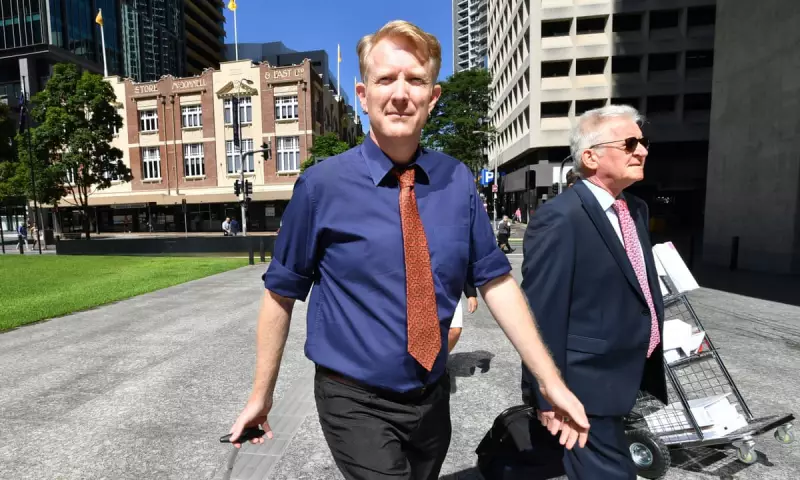
Adani Concludes Marathon Legal Fight Against Environmental Campaigner
Indian mining giant Adani has agreed to end its five-and-a-half-year legal pursuit of environmental activist Ben Pennings, marking a significant conclusion to a protracted court battle that raised important questions about protest rights and corporate power.
The Queensland Supreme Court formally signed off on orders on Wednesday, bringing the lengthy dispute to a close. The court order requires Pennings, who serves as national spokesperson for the environmental group Galilee Blockade, to refrain from seeking Adani's confidential information or encouraging others to do so.
A Harrowing Journey Through the Legal System
The legal confrontation began in 2020 when Adani attempted to conduct an unannounced search of Pennings's family home, seeking evidence that he had obtained confidential information about the controversial Carmichael coal mine project. The court rejected this initial application.
Court documents revealed that Adani had employed private investigators to surveil the activist and his family members, including taking photographs of him walking his then nine-year-old daughter to school. This surveillance formed part of the company's efforts to build its case against the campaigner.
Adani subsequently lodged a civil claim alleging that Pennings had sought to disrupt operations at the Carmichael mine, along with its suppliers and contractors. The company claimed his actions had caused several contractors, including drilling company Downer, to abandon their work on the project.
Activist Declares Victory After Years of Pressure
Ben Pennings expressed overwhelming relief at the conclusion of the case, stating he was "beyond ecstatic this harrowing case is over." However, he voiced strong criticism of the legal framework that allowed such prolonged litigation against an individual activist.
"Adani has wilfully abused our court system with five versions of their claims against me in five years," Pennings said. "They tried to silence me forever but I can again speak freely about the damage they are doing to Australia's democracy and precious places."
The activist characterized the outcome as "a massive victory for everyone who believes in democracy, free speech, and the right to protest." He emphasized that the result demonstrates how ordinary people can resist corporate pressure and succeed, while expressing deep gratitude to his family, community, and supporters who helped him endure the lengthy legal battle.
Adani's Perspective on the Settlement
Adani, operating through its Australian subsidiary Bravus Mining & Resources, maintained that Pennings had significantly damaged its business operations. The company alleged he had "orchestrated a sustained campaign" against the Carmichael project, soliciting employees to leak confidential information and using that information to harass contractors.
Mick Crowe, Chief Operating Officer of Bravus Mining & Resources, stated the company was pleased Pennings had agreed to the undertaking not to seek confidential information. "This damages claim was never about the money," Crowe explained. "All we wanted was for Mr Pennings to stop trying to get our confidential information and using it to harass and intimidate our contractors and suppliers."
Crowe detailed the practical consequences of the activism, noting that "a number of high-profile businesses walked away from us because of his campaign," while those who remained had to invest in additional security measures to protect against protests and office invasions.
Looking Forward: Implications for Environmental Activism
The resolution of this case comes after Adani dropped the portion of its claim in 2023 that alleged Pennings had unlawfully accessed secret information. Pennings has now agreed to formal undertakings not to obtain Adani's confidential information or solicit others to obtain it.
Pennings confirmed his intention to immediately return to direct action against the mine, indicating that while the legal battle has concluded, his environmental campaigning will continue. The case sets an important precedent for environmental activism and corporate accountability, particularly regarding the boundaries of legal action against protesters.
This settlement concludes one of the most prolonged legal disputes between a mining corporation and an environmental activist in recent Australian history, with implications that may influence similar cases involving protest rights and corporate responses to environmental campaigning.





